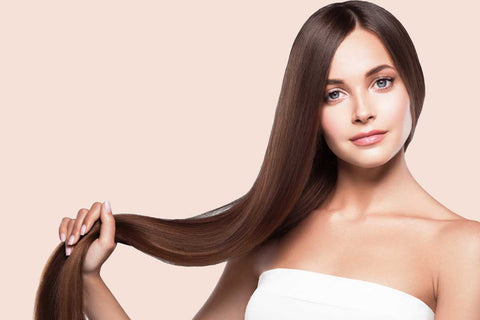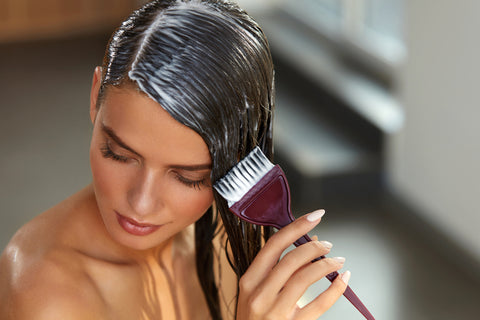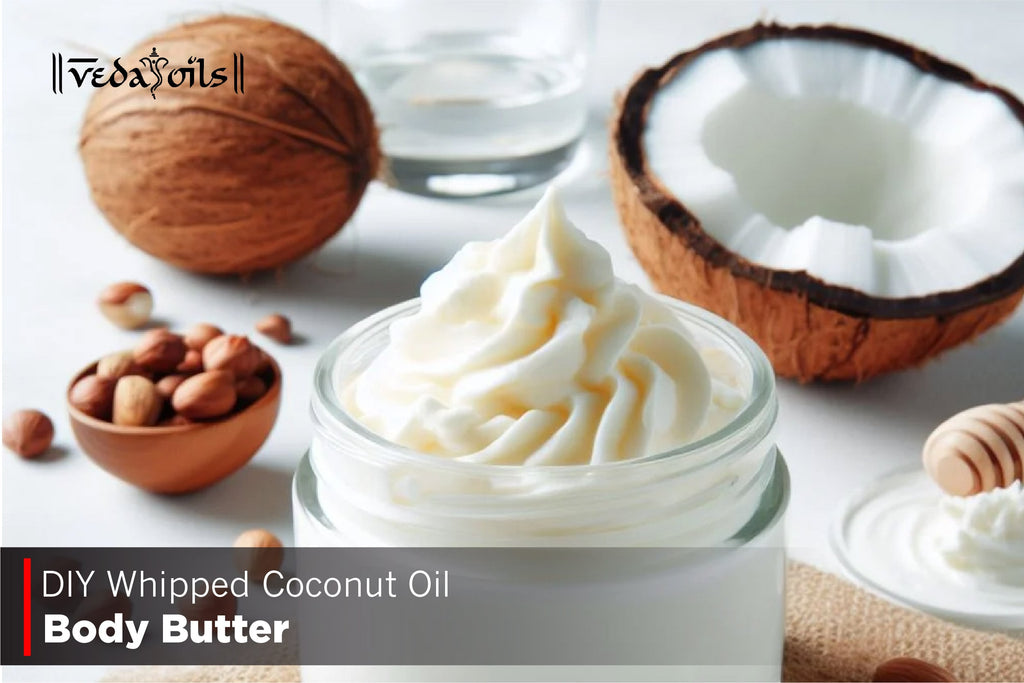Argan Oil For Dandruff - Benefits & How To Use
It may be stressful to deal with itchy, uncomfortable dandruff or flaky skin. Those flakes falling on your shoulders can really shoot up your stress levels. The worst part? It keeps reappearing no matter how much you spend on treatments.

Is there a less expensive method to efficiently cure persistent dandruff? We might just have the perfect solution for you! Let's get you introduced to Argan oil for dandruff. It not only eliminates dandruff but also promotes healing of the scalp and stop hair loss.
Why Use Argan Oil For Dandruff?
Proteins, fatty acids, and vitamin E are all abundant in argan oil. In addition to treating dandruff, it also repairs whatever harm it has caused. One of the most prevalent and important causes of dandruff is a dry scalp.
Perhaps to your surprise, argan oil has remarkable hydrating properties. You won't need another moisturiser in your hair care kit if you have this oil. According to several studies, it improves the skin's capacity to absorb moisture. Your skin will be able to retain more moisture as a result, and it won't ever dry out again.
Benefits of Argan Oil For Dandruff
What advantages does argan oil have, especially for dandruff? What effects does it have on overall hair health? The real question, however, should be what can't it do! Read on to know more about Argan oil for dandruff.

Cures Dandruff: Argan oil is excellent for treating the scalp since it is high in antioxidants, according to dermatologists. Argan oil can be a fantastic treatment for itchy, irritated scalps.
The imbalance between free radicals and antioxidants in the body, which causes oxidative stress and causes dandruff, can be relieved with argan oil.
Nourishes Hair: Argan oil soothes and hydrates the skin from the inside out, but it also shields the skin and hair from oxidative damage and may even offer UV protection.
It's all a result of the chemical makeup of argan oil. Argan oil has smaller molecules than other oils, which makes it more likely to enter the hair cuticle, hence ensuring nourishment.
Makes Hair Shinier: Argan oil is renowned for giving dull, damaged hair a brilliant, mirror-like gloss. This is mostly attributable to the oil's high content of vital fatty acids. Usage of argan oil differs for different hair types.
Higher argan oil concentrations will be most beneficial for thick, coarse hair types. A lighter product including argan oil (instead of pure argan oil) can work better for you if you have fine, slippery strands.

Prevents Breakage: Argan oil is rich in nourishing fatty acids and antioxidants like vitamin E, which have moisturising and healing properties. This is due to the vitamin E in argan oil which helps to improve the suppleness of hair.
How By hydrating the actual hair shaft, it helps alleviate dryness by making strands stronger, more flexible, and less likely to break.
Reduces Frizz And Split Ends: Argan oil can enter the hair cuticle more efficiently than most other hair oils since its molecules are smaller. The nutrients in the oil are better absorbed when the hair is softer, which makes it less likely to tangle.
Vitamin E and the omega fatty acids present in argan oil give hydration and protection to frayed or damaged hair shafts. While the latter calms frizz and ragged ends, the former strengthens hair.
How To Use Argan Oil For Dandruff?
Argan oil is recommended by several renowned doctors and hair stylists as a dry scalp therapy. Are you unsure about how to apply argan oil for these uses? Follow these instructions to have all your questions answered!
1. Exfoliate Your Scalp Before Applying
Anything stopping oil from getting to your hair follicles must be removed for it to nourish your hair. Dandruff, grime, and other impurities, as well as buildups, prevent oil from doing its job.

Exfoliate your scalp to obtain the greatest benefit of argan oil for dandruff by removing any impediments and enabling better penetration. Use any good hair scalp scrub, and you'll be good to go.
2. Scalp Massage With Argan Oil For Dandruff
Make sure your strands are well dried after washing your hair. Put a few drops of Argan oil in your hands, then begin gently massaging the scalp.

By massaging, you're really allowing the oil to penetrate all the way to the hair's roots, where it may do miracles.
- Massage your scalp in a circular motion using your fingertips all over your scalp, don't miss out on any region.
- Starting from the front of your head and gently moving backward is the best way to massage it.
- Continue rubbing for a while until the oil has evenly covered the scalp.
- To get quick results, repeat this method three to four times each week.
3. DIY Hair Mask Recipe With Argan Oil for Dandruff
Making a hair mask of argan oil for dandruff is not difficult. Since argan oil is a carrier oil rather than an essential oil, you can combine it with another essential oil for enhanced benefits.

- To make your own hair mask, mix pure argan oil and essential oils of your choice.
- Apply a tiny portion of the mixture straight to your hair.
- Your scalp and hair will feel better when you massage it. Continue massaging for a few minutes until all of your hair strands are coated with oil.
- Allow the oil to rest on your hair for the entire day. Once it has thoroughly permeated your hair and scalp, properly rinse it.
- This practise is bound to make you notice a reduction in dandruff. Make sure you do this every day to entirely get rid of dandruff and keep it from returning.
4. DIY Shampoo Recipe With Argan Oil For Dandruff
Shampoos sold in stores frequently include argan oil as a component. If you don't want to pay the additional money, you can make one yourself. DIY is always better.

- Mix a few drops of argan oil into your usual shampoo before using.
- Use your fingertips to immediately apply it to your head and massage it in.
- After letting it sit for a while, properly rinse it off.
After that, you may use a conditioner. Repeat this exercise two to three times per week for the greatest benefits. You'll start to feel your scalp become less dry over a relatively short period of time. To get rid of dry scalp completely, incorporate this into your everyday natural skincare routine.
Conclusion
Argan oil is called ‘liquid gold’ for a reason. Argan oil for dandruff is extremely beneficial in curing and also improving your general scalp and hair health. It can change the way your hair looks and feels completely. Say hello to healthy hair! Want to know where you can get the best quality argan oil? Look no further than VedaOils! Check it out now.
Frequently Asked Questions
Here are some frequently asked questions about Argan Oil For Dandruff!

Q.1 Can Argan Oil Remove Dandruff?
Ans: Yes, Due to the enormous amounts of antioxidants present in argan oil, it can effectively help in removing dandruff.
Q.2 Does Argan Oil Prevent Dandruff?
Ans: Yes, Argan oil's anti-inflammatory and antioxidant characteristics aid in maintaining healthy scalps. By nourishing your scalp, they aid in the prevention of skin disorders including psoriasis and seborrheic dermatitis. Its powerful anti-fungal properties keep dandruff at bay.
Q.3 Does Argan Oil Make Dandruff Worse?
Ans: No. Argan oil can successfully cure and prevent dandruff.
You May Also Like:
Buy Products
Related Articles
Disclaimer :- This article is intended for informational and educational purposes only and should not be considered a substitute for professional medical advice. For specific health concerns or treatment, please consult your personal physician. The article's editor, writer, and VedaOils organization do not assume any responsibility for any health outcomes resulting from the information provided. Readers are strongly encouraged to seek advice from their physician before acting on any recommendations made in these articles.
















 Sign in
Sign in Register now
Register now My Reward Points
My Reward Points









